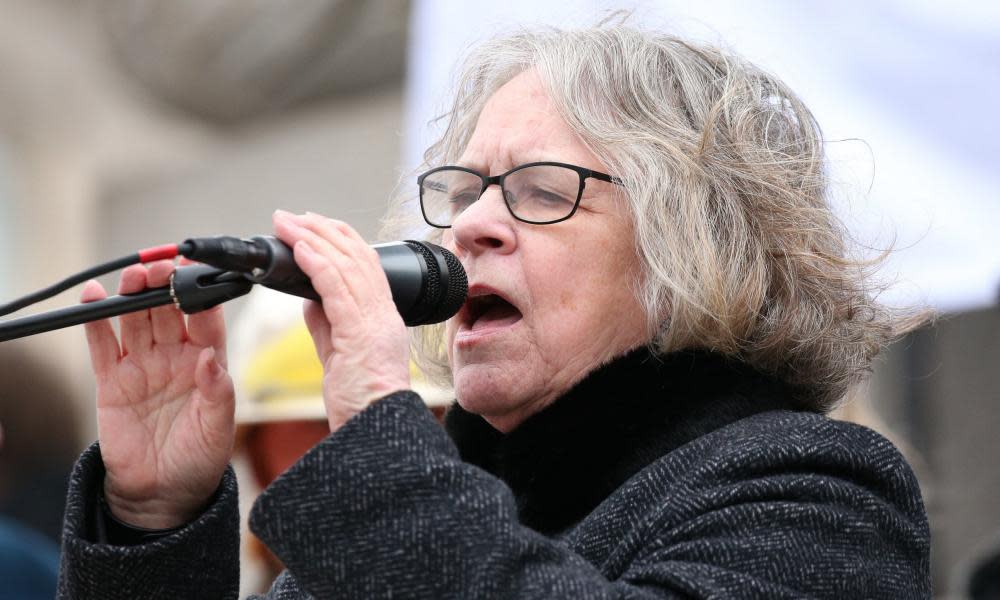Scale of police spying on UK leftist party was ‘Orwellian’, inquiry hears

Dozens of officers infiltrated Socialist Workers party for decades, recording personal details of members
At least 24 undercover police officers infiltrated a small leftwing party as part of a surveillance operation criticised as being “Orwellian” and unjustified in its scale, a public inquiry has heard.
Officers were sent to spy on the Socialist Workers party (SWP) in deployments that usually lasted four years. The party, whose total membership fluctuated around a few thousand, was the leftwing group most infiltrated by undercover police.
The surveillance was almost continuous between 1970 and 2007, with huge files being compiled on party members. These recorded personal details such as physical appearances, holiday plans, weddings, sexuality and childcare arrangements.
The secret files extended to logging the name and address of a 15-year-old boy who regularly bought the SWP’s newspaper in 1981, and pages of photocopied cheques – for as little as £2 – from trade unionists who donated to a campaign against unemployment in 1982.
The undercover police compiled a 171-page report on one of the SWP’s annual conferences, recording how the party discussed its political progress. A report on a later conference ran to 140 pages. The conferences were openly organised by the party.
In 1980, the police infiltrated the SWP’s annual rally, which had also been openly publicised, and subsequently listed the names and addresses of more than 1,000 supporters who had attended.
The extent of the infiltration was examined on Thursday at a public inquiry into how undercover police units spied on more than 1,000 predominantly leftwing political groups in operations that ran for more than four decades from 1968.
Giving evidence to the inquiry, Lindsey German, a prominent SWP member for 30 years, criticised how the police collected “trivial and pointless” information about public events.
The SWP is a Trotskyite party that promotes the abolition of capitalism through revolutionary means.
German said: “We were exercising our democratic rights to organise, protest, campaign and educate. This should not have been a reason to be treated as criminals.”
She rejected allegations that the party caused public disorder at demonstrations. The state was not justified in devoting so many resources “towards surveillance of people with whom they do not agree – it is a kind of thought police. The scale of it is also quite Orwellian,” German said.
The party operated as an open organisation that was easy to join, she said, adding that it was “perhaps too easy to join” in light of the scale of police infiltration.
She said she was disgusted that the police had recorded details of her relationships and living arrangements.
The current phase of the inquiry, which is headed by the retired judge Sir John Mitting, is looking at covert operations between 1968 and 1982. A demonstration by victims of the surveillance was held outside the inquiry on Thursday.

The inquiry has heard how the MI5 security service told police in 1973 that spying on the SWP was one of its primary aims and asked that undercover police infiltrate its headquarters. The police were able to meet MI5’s request to have “a permanent well-placed” spy there.
The detailed reports of the SWP’s annual conferences of 1978 and 1980 that were collated by the police spies encompassed its administration and finances, and lists of trade unions and educational institutions that included party members.

 Yahoo News
Yahoo News 
